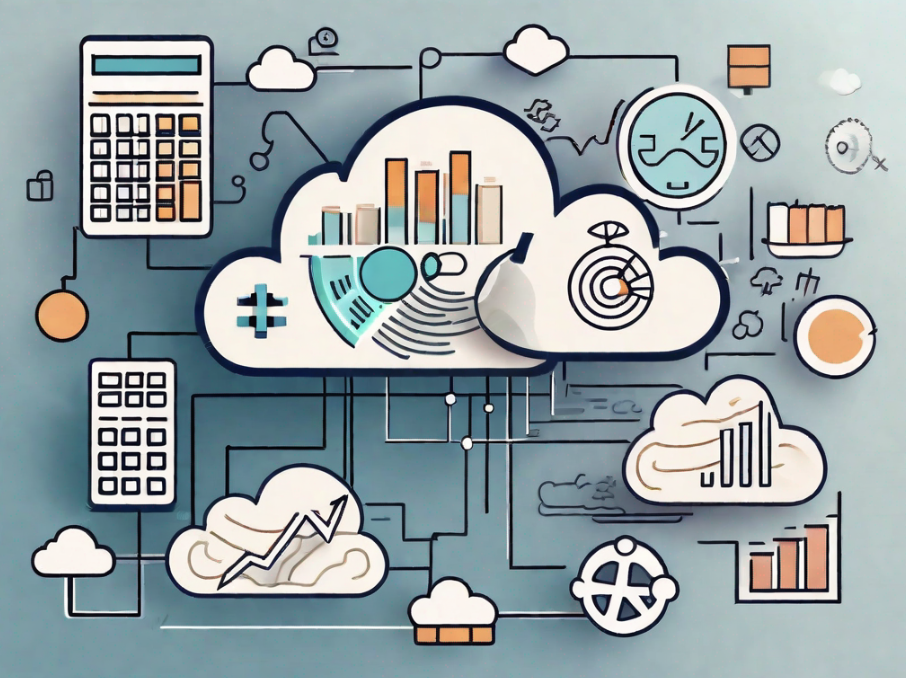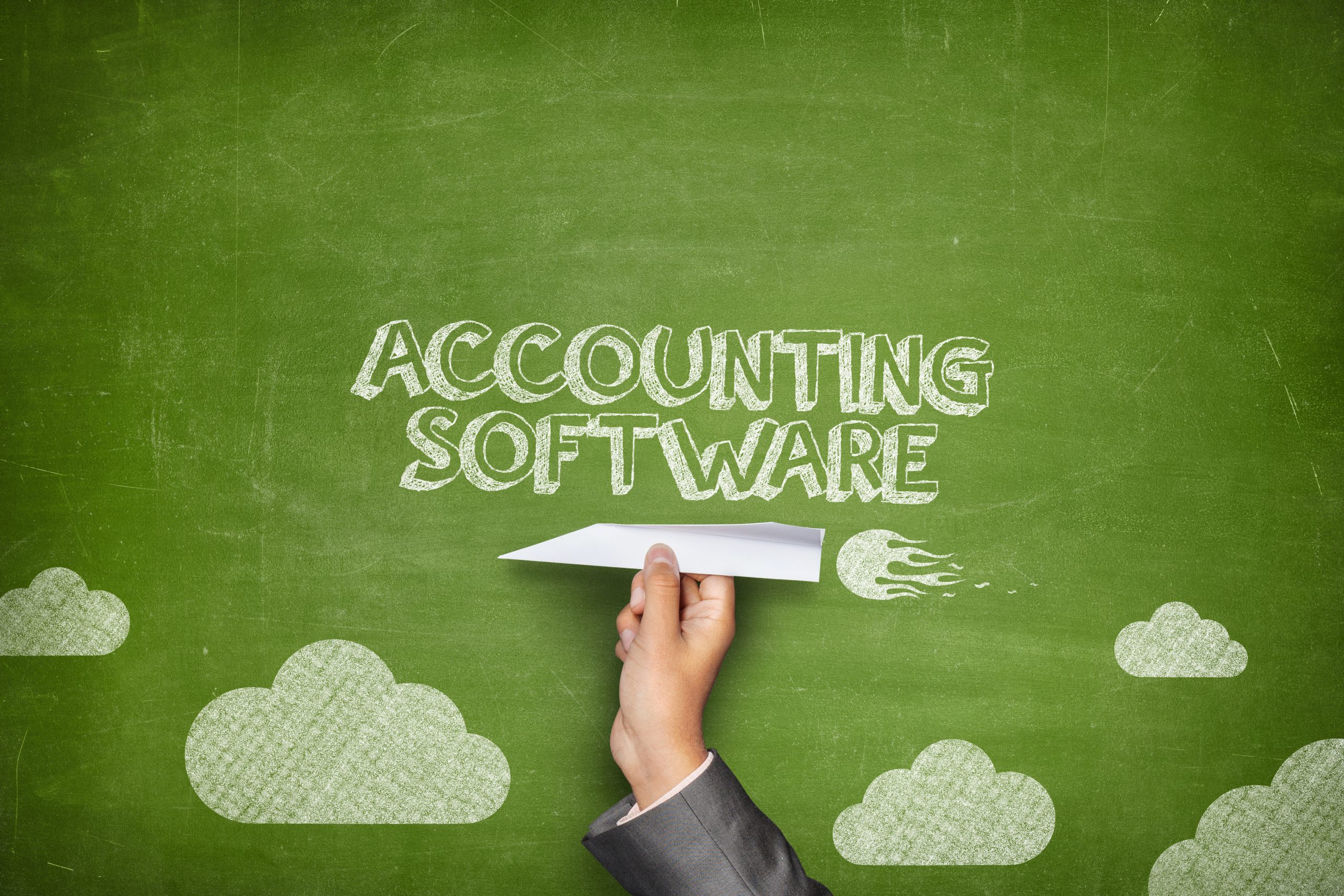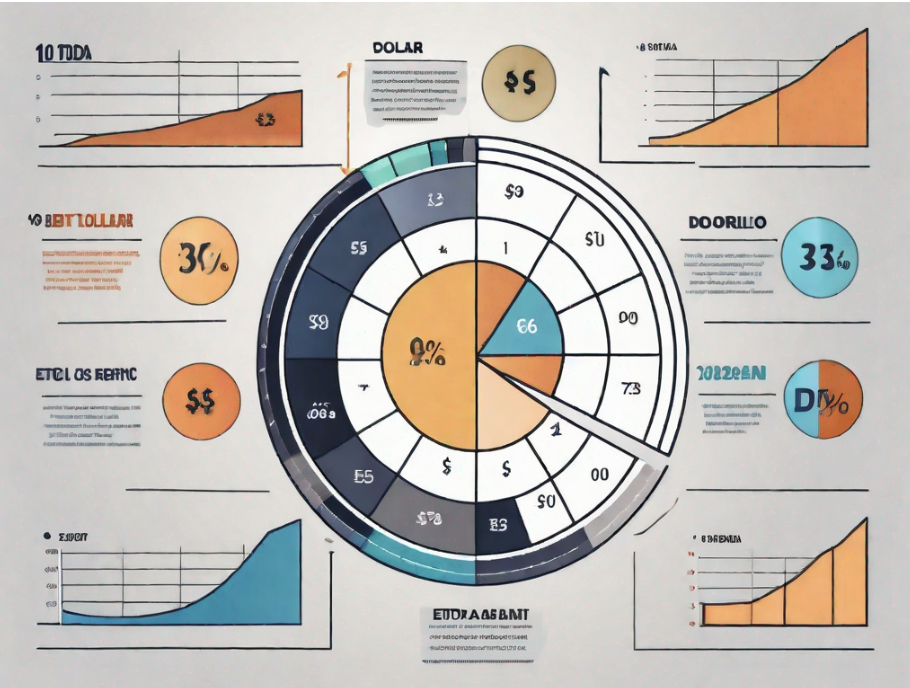The Benefits of Cloud-Based Accounting Software
Comparison of accounting software for small businesses and startups
Discover the countless advantages of using cloud-based accounting software for your business.

Cloud-based accounting software has emerged as a game-changer for businesses of all sizes. This innovative technology offers numerous advantages, ranging from cost efficiency to enhanced security. In this article, we will explore the benefits of cloud-based accounting software in detail, helping you understand why it has become a popular choice among organizations worldwide.

Understanding Cloud-Based Accounting Software
Understanding Cloud-Based Accounting Software
Cloud-based accounting software refers to accounting systems that are hosted on remote servers and accessed through the internet. It enables users to manage their financial data from any location and at any time. This software provides a wide range of features, including but not limited to invoicing, expense tracking, financial reporting, and tax management. By centralizing these functions, cloud-based accounting software streamlines financial operations and eliminates the need for physical infrastructure.
Cloud-based accounting software has revolutionized the way businesses handle their financial management. With its flexibility and accessibility, it has become an indispensable tool for organizations of all sizes and industries. Let’s dive deeper into how this software works and explore its benefits.
How Does Cloud-Based Accounting Software Work?
How Does Cloud-Based Accounting Software Work?
The workings of cloud-based accounting software are fairly straightforward. Users enter and store their financial data using a web browser or a dedicated application. This information is then transmitted to a secure remote server where it is processed and stored. Authorized individuals can access this data using their login credentials, enabling real-time collaboration and seamless financial management across teams and departments.
One of the key advantages of cloud-based accounting software is its ability to automate various financial processes. For example, when a user creates an invoice, the software can automatically generate and send it to the designated recipient. This not only saves time but also reduces the chances of errors and delays.
Furthermore, cloud-based accounting software offers advanced reporting and analytics capabilities. Users can generate detailed financial reports, track key performance indicators, and gain valuable insights into their business’s financial health. These insights can help businesses make informed decisions and identify areas for improvement.
Another important aspect of cloud-based accounting software is its integration with other business tools and applications. It can seamlessly connect with customer relationship management (CRM) systems, inventory management software, and payment gateways, among others. This integration eliminates the need for manual data entry and ensures data consistency across different platforms.
Security is a top priority for cloud-based accounting software providers. They employ robust encryption protocols and implement stringent security measures to protect sensitive financial data. Regular backups and disaster recovery plans are also in place to ensure data integrity and availability.
With cloud-based accounting software, businesses can also benefit from scalability. As the business grows, the software can easily accommodate increased data volume and user requirements. This scalability eliminates the need for costly hardware upgrades and allows businesses to adapt to changing needs without disruptions.

Advantages of Using Cloud-Based Accounting Software
Advantages of Using Cloud-Based Accounting Software
Cloud-based accounting software offers numerous advantages that can greatly benefit businesses of all sizes. In addition to the well-known benefits of cost efficiency, accessibility, and real-time financial monitoring, there are several other compelling reasons why companies are increasingly turning to cloud-based solutions.
Streamlined Collaboration and Communication
Cloud-based accounting software promotes seamless collaboration and communication within an organization. With the ability to grant different levels of access to various team members, businesses can ensure that the right people have access to the necessary financial data. This streamlines workflows and enables teams to work together more efficiently, regardless of their physical location.
Furthermore, cloud-based software often includes built-in communication tools, such as chat features or comment sections, allowing team members to discuss specific transactions or financial reports directly within the software. This eliminates the need for lengthy email chains or in-person meetings, saving time and increasing productivity.
Enhanced Data Security and Disaster Recovery
Data security is a top concern for businesses, especially when it comes to financial information. Cloud-based accounting software offers enhanced security measures compared to traditional on-premises solutions. Reputable cloud providers invest heavily in robust security protocols, including encryption, firewalls, and regular data backups.
In the event of a hardware failure, natural disaster, or other unforeseen circumstances, cloud-based software ensures that critical financial data remains safe and accessible. With automatic backups and redundant storage systems, businesses can quickly recover their data and resume operations without significant disruptions.
Integration with Third-Party Applications
Cloud-based accounting software often provides seamless integration with a wide range of third-party applications. This integration allows businesses to connect their accounting software with other essential tools, such as customer relationship management (CRM) systems, project management platforms, or e-commerce platforms.
By integrating these systems, businesses can streamline their operations, eliminate duplicate data entry, and gain a comprehensive view of their financial and operational activities. For example, integrating the accounting software with a CRM system can provide valuable insights into customer purchasing patterns and help optimize sales strategies.
Continuous Software Updates and Support
Cloud-based accounting software relieves businesses of the burden of managing software updates and maintenance. Unlike traditional software, which often requires manual updates and patches, cloud-based solutions automatically update in the background, ensuring that users always have access to the latest features and security enhancements.
In addition to continuous updates, cloud-based software providers typically offer comprehensive customer support. This support can range from online resources, such as knowledge bases and video tutorials, to dedicated customer service representatives who can assist with any technical issues or questions.
Overall, the advantages of using cloud-based accounting software extend beyond cost efficiency and convenience. Streamlined collaboration, enhanced data security, integration with third-party applications, and continuous software updates and support all contribute to making cloud-based accounting software an attractive choice for businesses seeking to optimize their financial management processes.
Our The Dostoyevsky Package is designed to provide monthly bookkeeping + controller services to small businesses and startups and organize financials for family offices and small business projects to streamline business processes. With our services, you can Elevate Your Financial Strategy and Empower Your Accounting.

Our The Dostoyevsky Package is designed to provide monthly bookkeeping + controller services to small businesses and startups and organize financials for family offices and small business projects to streamline business processes. With our services, you can Elevate Your Financial Strategy and Empower Your Accounting.


Security Aspects of Cloud-Based Accounting Software
Security Aspects of Cloud-Based Accounting Software
Cloud-based accounting software has revolutionized the way businesses manage their financial information. With the convenience and accessibility it offers, many organizations have embraced this technology. However, concerns about data security and protection have often been raised. In this article, we will explore the various security aspects of cloud-based accounting software and how it ensures the safety of sensitive financial data.
Data Protection Measures
Contrary to common misconceptions, cloud-based accounting software offers robust data protection measures. Reputable providers understand the importance of safeguarding user data and implement advanced security protocols to ensure its confidentiality and integrity.
One of the primary methods employed by these providers is encryption. By encrypting data both during transmission and storage, sensitive financial information is rendered unreadable to unauthorized parties. This ensures that even if someone were to intercept the data, they would not be able to decipher its contents.
In addition to encryption, cloud-based accounting software utilizes firewalls to protect against unauthorized access. These firewalls act as a barrier between the software and the outside world, monitoring and filtering incoming and outgoing network traffic. This effectively prevents malicious actors from gaining unauthorized access to the system.
Furthermore, multi-factor authentication is often implemented to add an extra layer of security. This authentication method requires users to provide multiple forms of identification, such as a password and a unique code sent to their mobile device, before they can access their account. This significantly reduces the risk of unauthorized access, even if a user’s password is compromised.
Another crucial aspect of data protection in cloud-based accounting software is the use of multiple data centers. These data centers are equipped with redundant systems, ensuring that even if one center experiences a failure, the data remains accessible from another location. This redundancy minimizes the risk of data loss and ensures the continuity of business operations.
Utilizing Technology to Facilitate Treasury Management
Utilizing Technology to Facilitate Treasury Management
In today’s digital era, technology plays a pivotal role in streamlining treasury management processes. Pharmaceutical manufacturers can leverage various treasury management systems (TMS) and financial technology solutions to automate and enhance their treasury operations.
Technology has revolutionized the way businesses operate, and the pharmaceutical manufacturing industry is no exception. By embracing innovative solutions, pharmaceutical manufacturers can optimize their treasury management practices, ensuring efficient cash flow, minimizing risks, and making informed financial decisions.
One of the key technologies that can facilitate treasury management in pharmacy manufacturing is the use of Treasury Management Systems (TMS). These systems provide comprehensive tools for cash flow forecasting, liquidity management, and risk analysis. With real-time data and advanced analytics, pharmaceutical manufacturers can gain valuable insights into their financial position, enabling them to make proactive decisions and mitigate potential risks.
In addition to TMS, electronic banking platforms have become indispensable for efficient cash management in the pharmacy manufacturing industry. These platforms enable seamless payment processing, bank account reconciliation, and cash flow optimization. By integrating their banking activities into a centralized electronic system, pharmacy manufacturers can streamline their cash management processes, reduce manual errors, and improve overall operational efficiency.
Automated reconciliation and reporting tools are another technology solution that can significantly enhance treasury management in pharmacy manufacturing. These tools automate the process of matching and reconciling financial transactions, eliminating the need for manual intervention. By leveraging these tools, pharmacy manufacturers can improve financial control, ensure data accuracy, and generate comprehensive reports for better decision-making.
Furthermore, the adoption of Robotic Process Automation (RPA) can revolutionize routine treasury tasks in the pharmaceutical manufacturers industry. RPA technology allows for the automation of repetitive and rule-based processes, such as data entry, report generation, and transaction processing. By implementing RPA, pharmaceutical manufacturers can free up valuable resources, reduce human errors, and focus on strategic treasury initiatives.
Recovery and Backup Options
One of the significant advantages of cloud-based accounting software is its automatic backup capability. Traditional on-premises systems often rely on manual backups, which can be time-consuming and prone to human error. In contrast, cloud-based solutions automatically create secure copies of financial information at regular intervals.
This automatic backup process mitigates the risks associated with hardware failures or natural disasters. In the event of a server crash or a catastrophic event, businesses can quickly restore their data from the most recent backup and resume their operations with minimal disruption. This level of backup and recovery capability surpasses what is typically achievable with on-premises systems.
Furthermore, cloud-based accounting software often provides users with the ability to customize their backup settings. This allows businesses to tailor their backup frequency and retention periods according to their specific needs. Whether it’s daily, weekly, or monthly backups, organizations have the flexibility to choose the most suitable option for their operations.
Moreover, cloud-based solutions offer additional features such as versioning, which allows users to access and restore previous versions of their financial data. This can be particularly useful in scenarios where accidental changes or deletions occur, providing an added layer of protection against human errors.
Cloud-based accounting software not only offers convenience and accessibility but also prioritizes the security and protection of sensitive financial data. With advanced data protection measures such as encryption, firewalls, and multi-factor authentication, along with robust backup and recovery options, businesses can confidently embrace this technology, knowing that their financial information is in safe hands.
Our The Dostoyevsky Package is designed to provide monthly bookkeeping + controller services to small businesses and startups and organize financials for family offices and small business projects to streamline business processes. With our services, you can Elevate Your Financial Strategy and Empower Your Accounting.


Transitioning to Cloud-Based Accounting Software
Transitioning to Cloud-Based Accounting Software
Steps to Implement Cloud-Based Accounting
Making a successful transition to cloud-based accounting software requires careful planning and execution. The process typically involves steps such as assessing current systems, selecting the right software provider, migrating data, and training employees. Engaging with an experienced implementation team or seeking professional guidance can greatly expedite and streamline this transition process, ensuring minimal disruption to daily operations.
Overcoming Challenges in Transition
Transitioning to cloud-based accounting software may pose certain challenges, such as resistance to change and data migration complexities. Organizations can overcome these barriers through effective change management strategies and by selecting a software provider that offers comprehensive support and training resources. Involving key stakeholders and communicating the benefits of the transition are essential elements to facilitate a smooth migration.
Future Trends in Cloud-Based Accounting Software
Future Trends in Cloud-Based Accounting Software
Predicted Developments and Innovations
Cloud-based accounting software is continuously evolving to meet the changing needs of businesses. Predicted developments include enhanced automation capabilities, integration with artificial intelligence and machine learning technologies, and improved data visualization tools. These innovations aim to further streamline financial processes, increase efficiency, and provide deeper insights for decision-making.
Impact on Business Operations and Strategies
The future trends in cloud-based accounting software are expected to reshape business operations and strategies. By automating routine tasks, organizations can allocate resources more strategically, focus on value-added activities, and provide better customer experiences. Moreover, the integration of emerging technologies within cloud-based accounting software will enable predictive analytics and facilitate proactive decision-making, enabling businesses to stay ahead in their respective industries.

Conclusion
In conclusion, the benefits of cloud-based accounting software are vast and encompass various aspects of financial management. From cost efficiency to enhanced security and convenience, this technology empowers businesses to optimize their financial operations, improve agility, and drive growth. As cloud-based accounting software continues to evolve, its impact on businesses will extend beyond the realm of finance, revolutionizing how organizations operate and make strategic decisions.
It All Starts With a FREE consultation!
Every client’s needs are unique and require varying amounts of time and attention. You can use this form to let us know what you’re looking for, and we’ll reach out to you to schedule an appointment and talk about rates for your business needs.
Please be as detailed as possible with what work is needed, what industry your business is in, and where you are located.
Our team will contact you with in 2 business days to set up the first meeting. We will make sure all your needs are taken into account when selecting the package and type of services you need.







Stay In Touch